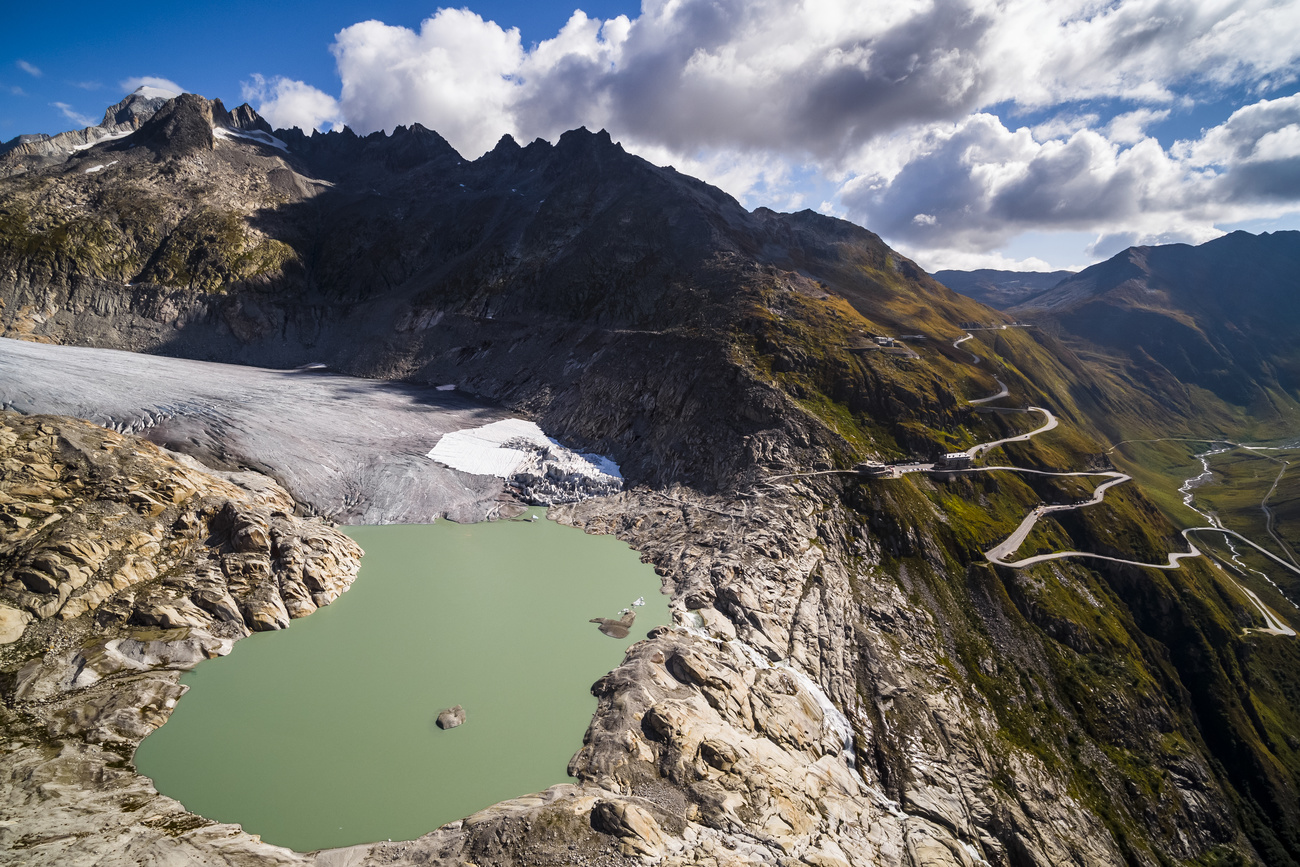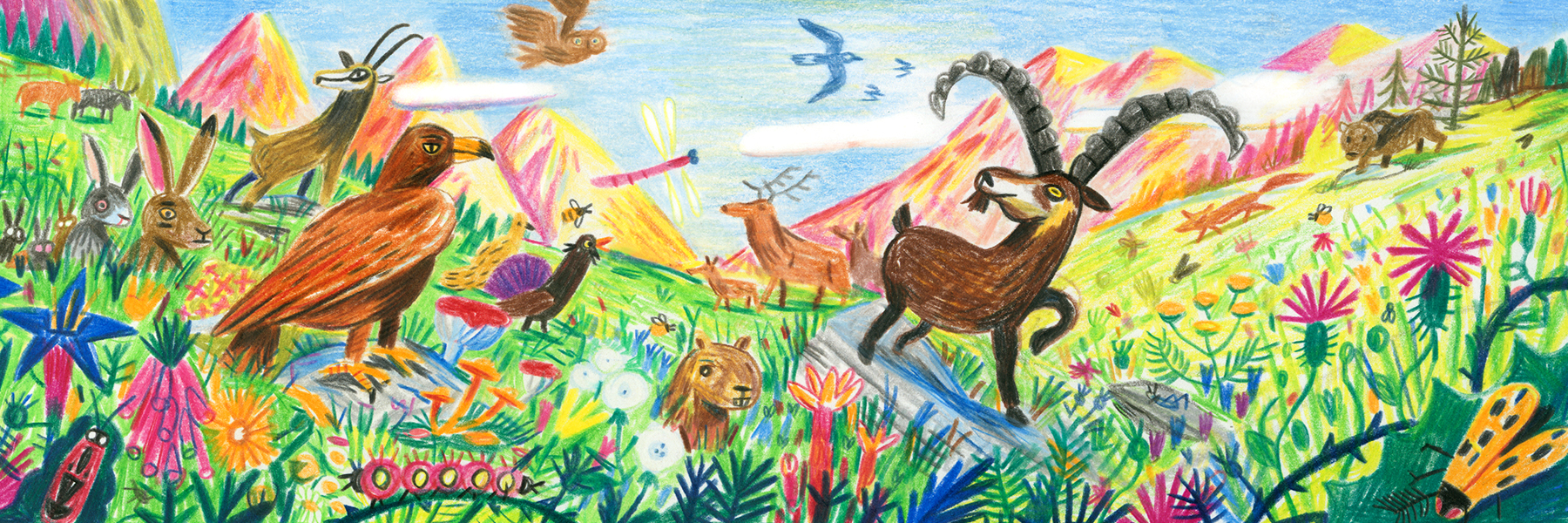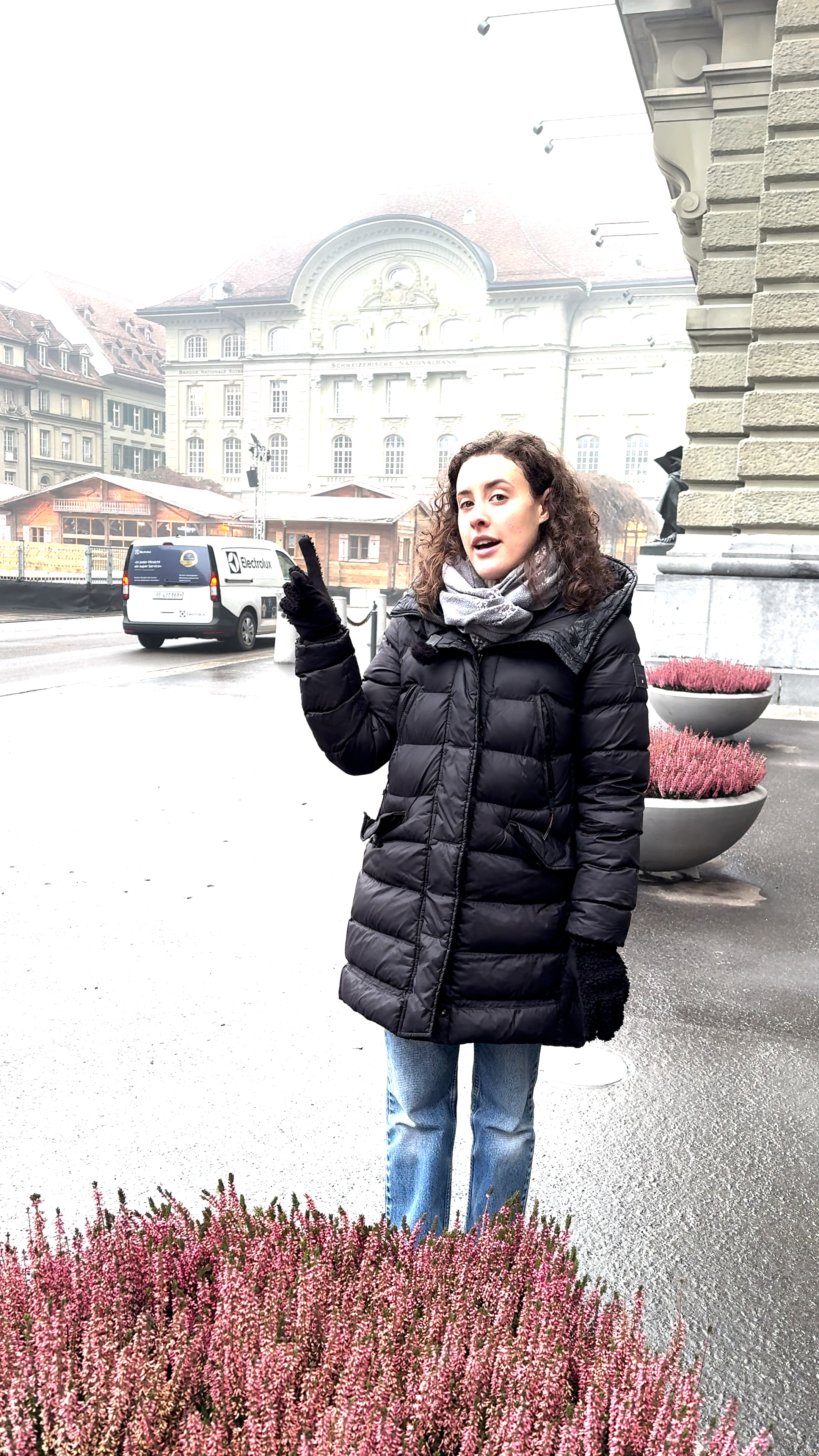
Retreating glaciers threaten biodiversity in the Alps, warns study

As glaciers melt in the Alps at unprecedented rates due to the climate crisis, river biodiversity is under threat and many invertebrate species risk extinction, a new study shows.
A study publishedExternal link in the Nature Ecology and Evolution journal on Thursday by scientists from Switzerland, Austria, Italy and the United Kingdom shows how invertebrates living in the cold glacier meltwater of the Alps could disappear with the retreating of the glaciers due to climate change. This could have consequences on the entire food chain.
Glacier rivers in the Alps are home to many invertebrate species, such as stone flies or flatworms, which are an essential component of the ecosystem. They serve as food for fish, amphibians, birds and mammals.
But with global temperatures rising and glaciers retreating, the living conditions for these animals are becoming more and more hostile. The year 2023 is looking to be another disastrous one for Swiss glaciers, with snow cover around 30% below the average of the last ten years.
+ Switzerland risks seeing another record glacier melt in 2023, says glaciologist
The study authors collected data from 30 years and conducted simulations on the evolution of 15 invertebrate species in the Alpine environment between 2020 and 2100. Researchers now predict that rivers will become warmer, drier or ever disappear due to climate change, so these organisms could lose most of their habitat.
Most of these invertebrates will face population drops, and some even risk extinction in the Alps. These include the stonefly Rhabdiopteryx and non-biting midges. It’s also not clear whether these animals will be able to migrate to new havens, since they are not good at flying or moving long distances.
+ Alpine species struggle to keep pace with climate crisis
But even if some try to climb to cooler areas, these are currently not entirely protected. So, scientists say this will bring “new challenges for the protection of biodiversity.”
“Alpine conservation strategies must change to accommodate the future effects of global warming,” conclude the researchers.

More
The Swiss Alps are beautiful, but are they biodiverse?

In compliance with the JTI standards
More: SWI swissinfo.ch certified by the Journalism Trust Initiative






























You can find an overview of ongoing debates with our journalists here . Please join us!
If you want to start a conversation about a topic raised in this article or want to report factual errors, email us at english@swissinfo.ch.